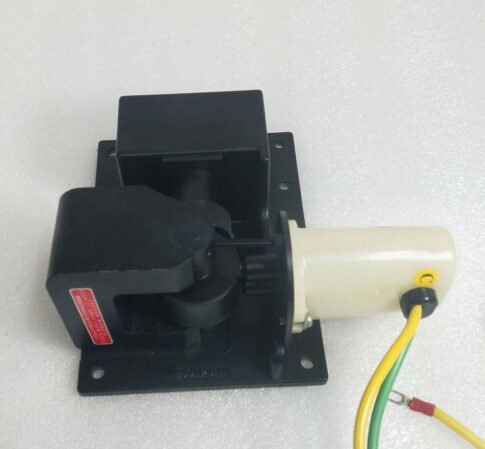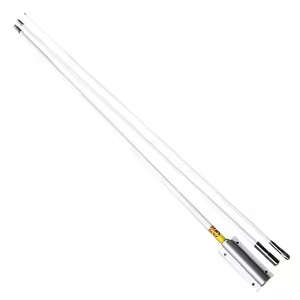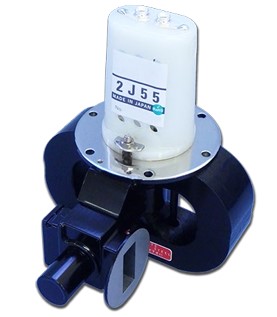Magnetrons: Types, Applications, and Key Features
Magnetrons are high-powered vacuum tubes designed to generate microwave signals. They play a critical role in modern technologies such as radar systems, microwave ovens, and specialized lighting systems. These devices operate by using a combination of electric and magnetic fields to produce high-frequency electromagnetic waves.
-
M1302A Magnetron
-
2.6-meter-long MFHF SSB antenna for DSC
Original price was: AED 1,350.0.AED 725.0Current price is: AED 725.0. -
2J55 Magnetron
Types of Magnetrons
- Cavity Magnetrons
Cavity magnetrons rely on high-voltage DC power to create a resonant, high-frequency field within cylindrical cavities. This design is crucial for radar and industrial applications requiring precision and power. - Cylindrical Magnetrons
These magnetrons are efficient for industrial sputtering processes. Key parameters include direct current, radio frequency, and cooling requirements. - Circular Magnetrons
Often used in sputtering applications, circular magnetrons are optimized for uniform coatings and high-performance standards. - Rectangular Magnetrons
These are ideal for large-scale coating applications, including aerospace, medical devices, and architectural glass production. - Custom Magnetrons
Designed for specialized applications, custom magnetrons include advanced components like shutter assemblies, mounting hardware, and gas manifolds.
Applications of Magnetrons
- Radar Systems: Magnetrons generate short pulses of microwave energy to enable precise object detection.
- Microwave Ovens: A waveguide directs microwave energy into the cooking chamber, heating food efficiently.
- Lighting Systems: Magnetrons create microwave fields in sulphur and metal halide lamps for high-intensity lighting.
Materials in Magnetrons
Magnetrons are typically constructed from durable materials like copper and stainless steel, ensuring high conductivity and corrosion resistance.
FAQs About Magnetrons
1. What is a magnetron used for?
Magnetrons are used in radar, microwave ovens, and lighting systems to generate high-frequency microwave energy.
2. What materials are magnetrons made of?
Common materials include copper and stainless steel, valued for durability and performance.
3. How does a cavity magnetron work?
Cavity magnetrons use high-voltage DC power to create resonant fields in cylindrical cavities, generating microwave energy.
4. What are sputtering magnetrons?
Sputtering magnetrons are used for coating applications, utilizing materials like metals and alloys to create thin films.
5. Are magnetrons customizable?
Yes, many manufacturers offer custom magnetrons tailored for specialized industries, including aerospace and medical.
6. What industries use rectangular magnetrons?
Industries such as defense, optical manufacturing, and semiconductor production widely use rectangular magnetrons.





Latest Products
YDK Technologies MKN020 Gyro compass connection box
AED 3,960.0Original price was: AED 3,960.0.AED 2,850.0Current price is: AED 2,850.0.Onwa KM-8X 5-in-1 Marine Bundle Set Radome – GPS, Chartplotter, EchoSounder, AIS, Radar
8-inch GPS Chart Plotter with AIS and Radar
Onwa KM-8A (BUNDLE) 8-inch Color TFT LCD GPS Chart Plotter with Class B+ AIS Transponder MFD [BUNDLE]